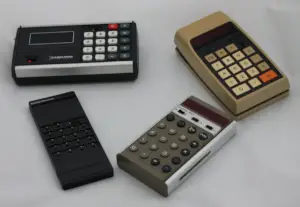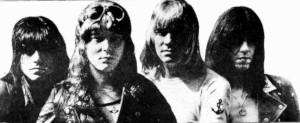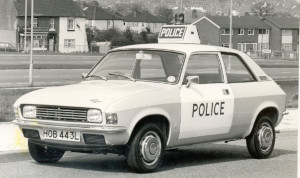

What happened in 1973? - UK

We look at events, new products and music from 1973 in the UK
1973 was a time of great change in the UK.
Britain joined the EEC (later the EU) on the first day of the year. The Open University awarded its first degrees, women were admitted as full members of the London Stock Exchange and commercial radio started.
Towards the end of the year, things were looking ominous. The Arab oil-producing countries started to restrict supplies of oil and raise prices. In the UK, a 50mph speed limit was imposed on all roads to conserve petrol.
At the end of the year, the Government introduced a three-day working week to conserve fuel. They feared a strike by coal miners in the new year.
In the news
- 1 January 1973 - Britain joined the EEC (European Economic Community) along with Denmark and Ireland.
- 11 January 1973 - The Open University awarded its first degrees.
- 1 February 1973 - A new European egg-grading system was introduced in the UK. Sizes 1-6 replaced large/standard/medium/small/extra small.
- 10 March 1973 - The British Governor and his assistant, Sir Richard Sharples and Captain Hugh Sayers, were shot dead in Bermuda by a faction associated with the Black Power movement.
- 26 March 1973 - The London Stock Exchange admitted women as members of the for the first time in its history.
- 1 May 1973 - 1.6 million workers went on a one-day strike to protest the Government's pay restraint policy.
- 20 May 1973 - The Royal Navy sent warships to protect UK trawlers against Icelandic gunboats in the 'Cod War'.
- 9 July 1973 - British rule ended in the Bahamas.
- 30 July 1973 - Distillers Company which sold Thalidomide, a drug responsible for severe birth defects, agreed to pay £20 million to victims.
- 31 July 1973 - The Northern Ireland Assembly met for the first time in over a year, after direct rule from Westminster was imposed in 1972.
- 10 September 1973 - Barbara Hulanicki and Simon Fitzsimon opened the 'Big Biba' store in London. They took over the premises of Derry and Toms on Kensington High Street, London.
- 26 September 1973 - Concorde made its first transatlantic flight.
- 8 October 1973 - Britain's first commercial radio station began broadcasting. LBC (London Broadcasting Company) Radio was a news and current affairs station. Commercial television began in 1955.
- October 1973 - The Organization of Arab Petroleum Exporting Countries (OAPEC) announced an oil embargo on countries which helped Israel in the Yom Kippur War. The principal target was the United States. The UK was included, but it was little affected by the embargo. The OAPEC countries cut production and pushed up the price of oil.
- 14 November 1973 - Princess Anne married Mark Phillips at Westminster Abbey. It was also the then Prince Charles, now King Charles III's 25th birthday.
- December 1973 - A 50mph speed limit was introduced on all roads in the UK to reduce petrol consumption. Government ministers considered petrol rationing; they issued ration books, but they were not used.
- 31 December 1973, 12am - a three-day working week came into effect in the UK to reduce power consumption.

Facts about 1973
- Average pay for male manual workers was £38.10.
- The best-selling car of 1973 was the Ford Cortina MkIII.
- The best-selling cigarette was Players No 6.
- The most popular foreign holiday destination was Spain.
- In 1973 93% of British households had a television set, 78% had a refrigerator, 67% had a washing machine and 43% had a telephone.
- The BBC Sports Personality of the Year was Jackie Stewart, the Formula 1 driver.
For more information see How much did things cost in 1973?
Television

CBS Television, Public domain, via Wikimedia Commons
These British TV shows debuted in 1973:
- Whatever Happened to the Likely Lads? (BBC1) - comedy starring James Bolam and Rodney Bewes
- Some Mothers Do 'Ave 'Em (BBC1)- comedy starring Michael Crawford and Michele Dotrice
- That's Life (BBC1) - magazine programme presented by Esther Rantzen
- Last of the Summer Wine (BBC1) - long-running comedy set in Yorkshire
- M*A*S*H (BBC2)- a US import, a black comedy about the Korean War
- The Ascent of Man (BBC2)
- The World at War (ITV) - long-running documentary about the Second World War
- Man About the House (ITV)
- Billy Liar (ITV)
Children's TV
Children's TV programmes starting in 1973 included:
- The Wombles (BBC1)
- Pipkins (ATV)
- Barnaby (the Bear) (BBC1)
- Hickory House (ITV Granada)
- Teddy Edward (BBC1)
- Lizzy Dripping (BBC1)
- The Kids from 47A (ITV)
- The Tomorrow People (ITV) - Sci Fi
Source: The Encyclopaedia of Cult Children's TV by Richard Lewis
Music

Capitol Records, Public domain, via Wikimedia Commons
The best-selling pop records of 1973 were:
- Block Buster - The Sweet
- I Love You Love Me Love - Gary Glitter
- Eye Level - Simon Park Orchestra
- Tie A Yellow Ribbon Round The Old Oak Tree - Dawn
- I'm The Leader Of The Gang (I Am) - Gary Glitter
- Cum On Feel The Noize - Slade
- See My Baby Jive - Wizzard
- Young Love - Donny Osmond
- Daydreamer/The Puppy Song - David Cassidy
- Long Haired Lover From Liverpool - Little Jimmy Osmond
Source: UK Top 100 Singles by Paul Gambaccini, Tim Rice and Jonathan Rice, published by Guinness in 1993
Sport
Sunderland beat Leeds United 1-0 to win the 1973 FA Cup. Leeds won the previous year. Liverpool won the Football League.
Leeds United reached the final of the European Cup-Winners' Cup, but lost to Milan.
Red Rum won the Grand National at Aintree ridden by Brian Fletcher. The trainer was Ginger McCain. It was the first of three wins for Red Rum.
Morston, ridden by Edward Hide, won the Derby at Epsom.
Toys
The Toy of the Year in 1973 was the Mastermind code breaking game.
Other toys and games launched in 1973 included:
- Escape from Colditz board game
- Evel Knieval stunt motor cyclist toy
- Fisher Price Activity Centre
- Flight Deck - launch a plane from the deck of an aircraft carrier
- Othello
- Perfection
- Shrinky Dinks
- Waddington's Ulcers (board game)
Cars

Image by West Midlands Police licensed under Attribution-ShareAlike 2.0 Generic (CC BY-SA 2.0)
In 1973 British Leyland launched the Austin Allegro. It was meant to replace the best-selling 1100/1300 range, but failed to achieve the success of the outgoing model.
New models launched for the UK market in 1973 were:
- Austin Allegro
- Datsun Sunny 210
- Reliant Robin - three-wheeler
- Triumph Dolomite Sprint
- Volkswagen Passat
Britain's top-selling cars in 1973 were:
- Ford Cortina ( the reps' favourite)
- Ford Escort (family runabout to boy racer)
- Morris Marina (BL's version of the Cortina)
- Vauxhall Viva (Vauxhall's version of the Escort)
- Austin 1100/1300 (funny how it outsold the Allegro)
- Mini (the original and the best)
- Hillman Avenger (family car with L-shaped rear lights)
- Rootes Arrow-Range (Hillman Minx/Hunter etc)
- Austin Maxi (family hatchback with lots of space)
- Ford Capri (sports car for the man with two children and a mortgage)
Read more: What were the best selling cars of the 1970?
Products
Despite the economic troubles, many people's lives improved in the early 1970s.
In 1973, 95% of households had a television set, 78% had a 'fridge, 67% had a washing machine, but only 39% had central heating.
To get an idea of what new products people were interested in I had a look at the Consumers' Association (Which?) reports for 1973.
Which? reviewed many of the staple consumer goods:
- Cookers
- Refrigerators
- Washing machines
- Spin dryers
- Food mixers
- Electric irons
- Vacuum cleaners
Which? also looked at long-distance air travel for the first time. Until the early 1970s, destinations, like the USA, Australia and Hong Kong were out of reach for all, but the true jet set. Now the middle classes were starting to experience them. Though it might still be a once-in-a-lifetime trip.
Colour television was enjoyed by more people in the 1970s. Which? reviewed colour TVs in 1973.
Cameras were a popular consumer item. In 1973 Which? examined all types from semi-professional 35mm SLRs to 35mm compacts, instant (Polaroid) cameras and the new easy-to-use and small-sized 110 film cameras. Home movies were also popular for some. Which? looked at 8mm cine projectors.
Technology was making its presence felt in some ordinary homes in 1973. Although they were still too expensive for most people, Which? reviewed pocket electronic calculators for the first time. Home computers were a distant dream in 1973. Computers still filled whole rooms. Which? reviewed manual and electric portable typewriters.
In 1973 Sinclair launched the Cambridge pocket calcualtor.
More on 1973
More on the 1970s
- What happened in the 1970s - UK?
- What happened in the 1970s - USA?
- What happened in the 1971 - UK?
- What happened in the 1972 - UK?
By Steven Braggs, November 2022


Comments